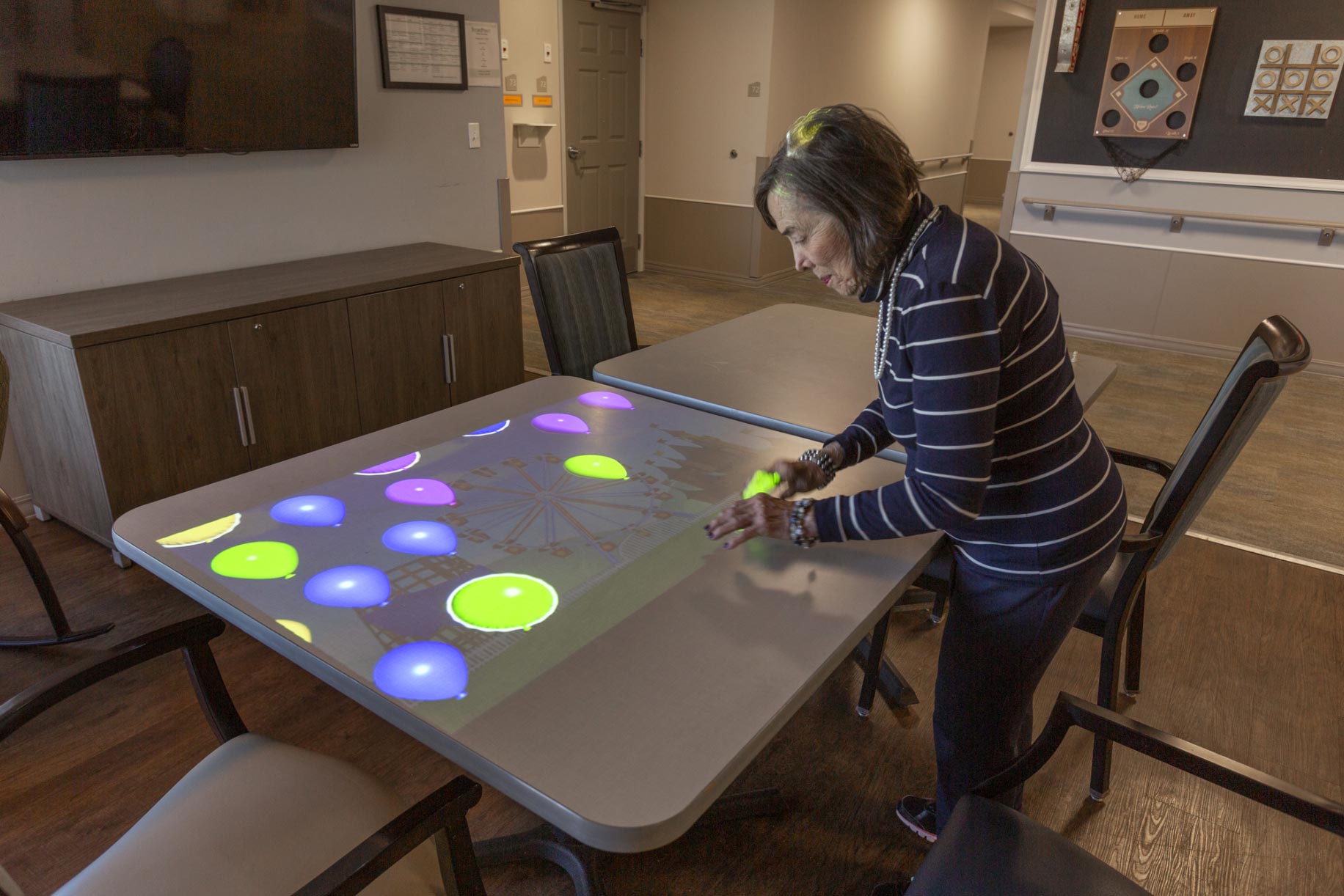Creating Safe and Comfortable Rooms with Alzheimers Care Charlotte Programs
Creating Safe and Comfortable Rooms with Alzheimers Care Charlotte Programs
Blog Article
Thoughtful Alzheimer's Look after Your Liked Ones
The intricacy of Alzheimer's illness demands a specialized method to care that stresses compassion and understanding. Recognizing the mental and emotional demands of individuals affected by this condition is paramount in enhancing their quality of life. Caretakers play an important role in creating a setting that fosters dignity and regard, using techniques that advertise emotional link and lower anxiousness. As we check out the various approaches and strategies that can transform caregiving into an extra thoughtful experience, it comes to be clear that the trip is as much concerning the caretaker as it has to do with the specific with Alzheimer's.
Recognizing Alzheimer's Disease
Alzheimer's disease is a dynamic neurodegenerative problem that largely impacts cognitive function, leading to amnesia, damaged thinking, and adjustments in actions. It is the most common form of dementia, making up 60-80% of all instances. The disease usually shows up in individuals aged 65 and older, although early-onset Alzheimer's can take place in more youthful people.
The pathophysiology of Alzheimer's involves the accumulation of amyloid plaques and neurofibrillary tangles in the mind, causing neuronal degeneration and synaptic loss. These adjustments interrupt communication in between mind cells, considerably impairing cognitive abilities and day-to-day functioning. Early signs might consist of problem keeping in mind recent events and challenges in problem-solving, which can escalate to disorientation and problem with language.
As the disease developments, people might show profound memory deficiencies, confusion regarding time and location, and problem recognizing loved ones. Behavior adjustments, consisting of withdrawal, agitation, and stress and anxiety, might also take place. Comprehending the professional progression of Alzheimer's is essential for caretakers and medical care providers, as it educates efficient administration methods and interventions tailored to the requirements of people affected by this devastating problem.
The Significance of Compassionate Treatment
Compassionate treatment is essential in sustaining people with Alzheimer's disease, as it significantly boosts their lifestyle. This technique focuses on the psychological and psychological well-being of patients, fostering an environment that promotes dignity, respect, and understanding. People with Alzheimer's frequently experience stress and anxiety, irritation, and complication, which can be relieved via caring interactions.
Empathy in caregiving not only aids in identifying the one-of-a-kind demands of each person yet likewise strengthens the caregiver-patient relationship. When caretakers approach their functions with compassion, they produce a secure room where clients really feel valued and understood, which can reduce behavior obstacles linked with the disease. This encouraging environment encourages far better communication and involvement, promoting an extra reliable action to the treatment given.
Furthermore, caring care prolongs beyond the person; it likewise encompasses support for families. Caregivers that exercise empathy are more geared up to address the psychological concern faced by liked ones, giving confidence and assistance through a challenging trip. Inevitably, the value of caring care hinges on its ability to transform the caregiving experience, causing enhanced outcomes for both individuals with Alzheimer's and their families.
Practical Caregiving Methods
Reliable caregiving for individuals with Alzheimer's illness calls for useful approaches that attend to the special challenges positioned by the condition. One of the primary techniques is establishing a constant everyday regimen, which can give framework and familiarity, lowering anxiety for both the caretaker and the individual. Caretakers need to additionally streamline jobs by breaking them down right into smaller, convenient actions, therefore enhancing the individual's feeling of accomplishment and lessening irritation.
Interaction is an additional crucial element; caretakers need to use clear, straightforward language and keep eye get in touch with to promote understanding. Making use of aesthetic cues, such as tags or photos, can better aid comprehension visit this site and navigation in the setting.
Security is extremely important. Adjusting the living space to remove hazards-- such as setting up or protecting rugs grab bars-- can assist prevent crashes. Additionally, caretakers should motivate freedom by allowing people to participate in familiar tasks, which can reinforce self-worth and advertise wellness.
Psychological Support Strategies
Psychological health is a vital element of take care of people with Alzheimer's disease, as it directly affects their high quality of life. Alzheimers Care Charlotte. Giving psychological support methods can considerably enhance their everyday experiences and cultivate a complacency and belonging
One effective strategy is active listening, which involves providing full attention to the person, recognizing their sensations, and responding with empathy. This method aids the person really feel valued and recognized, decreasing feelings of seclusion or irritation. Furthermore, using recognition therapy can be beneficial; instead than dealing with misconceptions, caregivers can affirm the person's experiences and emotions, promoting a calming setting.
Participating in memory therapy is another powerful approach, allowing people to share feelings, memories, and stories related to their past. This not just promotes cognitive feature but also reinforces psychological links. Incorporating familiar music or art can also evoke positive feelings and stimulate joyful communications.
In addition, making certain normal physical touch, such as holding hands or mild hugs, can give convenience and peace of mind, enhancing emotional bonds. These techniques, when constantly used, can develop a nurturing ambience that supports the psychological health and wellness of individuals with Alzheimer's, boosting their overall wellness.
Creating a Helpful Atmosphere

Firstly, think about the physical find more format of the space. Clutter-free locations, familiar furnishings setups, and well-defined pathways can lower confusion and promote mobility. Making use of soothing shades and sufficient lights can further improve the ambience, making it more inviting and less frightening.
Second of all, uniformity is essential. Maintaining a foreseeable everyday routine aids people with Alzheimer's feeling a lot more safe and secure. Acquainted activities, routine dish times, and set up social communications can significantly minimize anxiousness and disorientation.
In addition, sensory aspects play an essential function. Incorporating acquainted fragrances, songs, and responsive items can stimulate favorable memories and boost involvement. Customizing the area with valued pictures and purposeful things can additionally cultivate a sense of identity.
Final Thought
Thoughtful Alzheimer's care dramatically improves the lifestyle for individuals affected by this progressive illness. i loved this By prioritizing emotional wellness and carrying out reliable caregiving approaches, caretakers can cultivate an environment that advertises self-respect and belonging. Strategies such as energetic listening and establishing constant regimens serve to minimize anxiousness while reinforcing the caregiver-patient partnership. Inevitably, this technique not only offers important comfort and support yet additionally empowers people to browse the intricacies of Alzheimer's with self-respect and grace.
As we explore the numerous strategies and methods that can change caregiving right into an extra caring experience, it comes to be clear that the journey is as much concerning the caretaker as it is concerning the private with Alzheimer's.

Compassionate treatment is crucial in supporting people with Alzheimer's disease, as it significantly enhances their high quality of life - Alzheimers Care Charlotte. Eventually, the significance of compassionate care lies in its ability to transform the caregiving experience, leading to boosted results for both people with Alzheimer's and their families
Compassionate Alzheimer's treatment dramatically boosts the top quality of life for people influenced by this dynamic disease.
Report this page